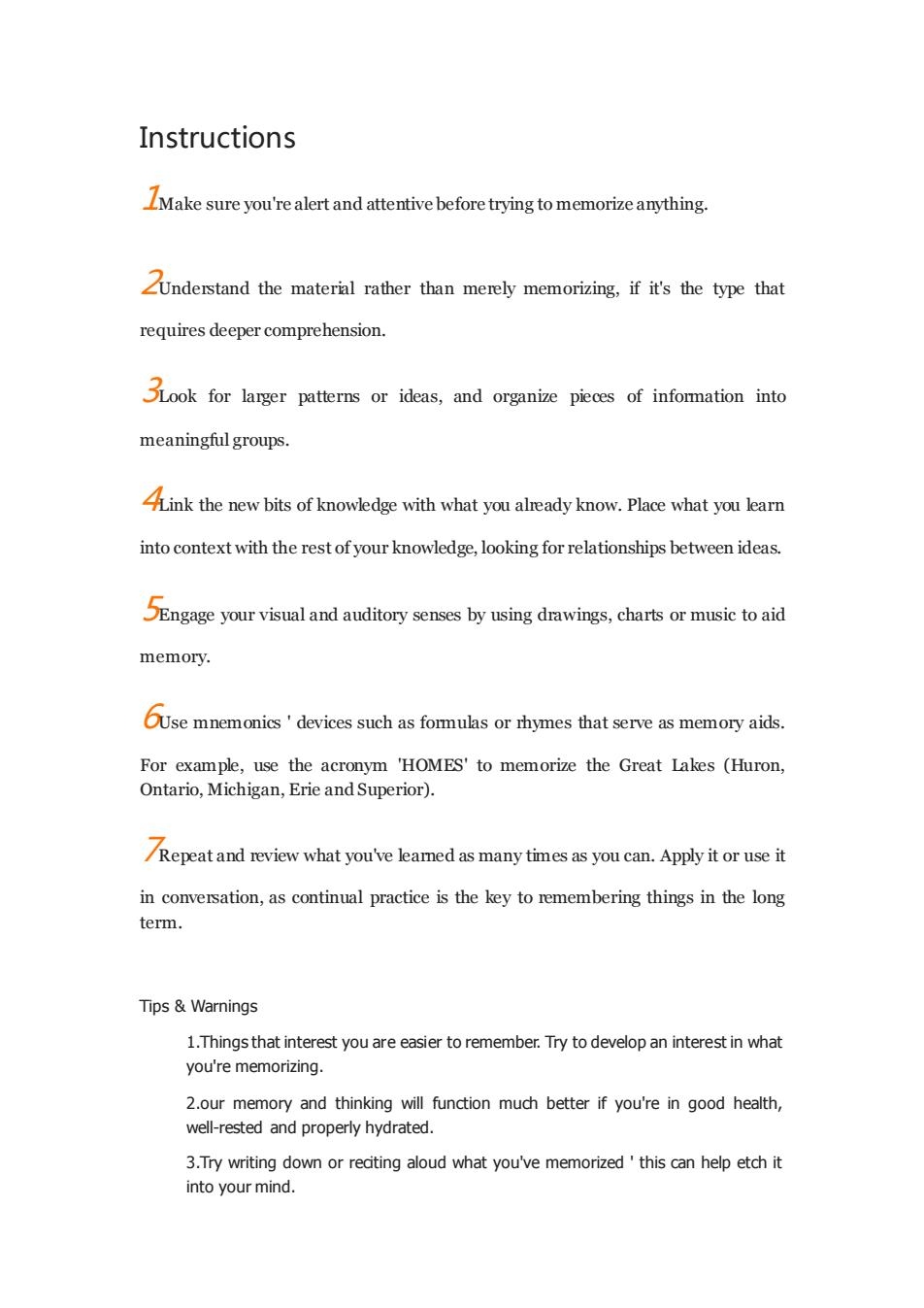正在加载图片...

Instructions Make sure yourealert and attentive beforetrying tomemorieanything. Understand the material rather than merely memorizing,if it's the type that requires deeper comprehension. ookfor langer patterns or ideas,and ornize peces of infommation into meaningful groups. ink the new bits of knowledge with what you already know.Place what you learn into context with the rest of your knowledge,looking for relationships between ideas. eyourvisand auditory senses by using drawings,chartsor music to aid memory. OUse mnemonicsdevices such as formulas or thymes that serve as memory aids. For example,use the acronym 'HOMES'to memorize the Great Lakes (Huron, Ontario,Michigan,Erie and Superior). Repeat and eview what you've amed as many times as you can.Apply itse it in conversation,as continual practice is the key to remembering things in the long term. Tips Warnings 1.Things that interest you are easier to remember.Try to develop an interest in what you're memorizing. 2.our memory and thinking will function much better if you're in good health, well-rested and properly hydrated. 3.Try writing down or reciting aloud what you've memorized this can help etch it into your mind.Instructions 1Make sure you're alert and attentive before trying to memorize anything. 2Understand the material rather than merely memorizing, if it's the type that requires deeper comprehension. 3Look for larger patterns or ideas, and organize pieces of information into meaningful groups. 4Link the new bits of knowledge with what you already know. Place what you learn into context with the rest of your knowledge, looking for relationships between ideas. 5Engage your visual and auditory senses by using drawings, charts or music to aid memory. 6Use mnemonics ' devices such as formulas or rhymes that serve as memory aids. For example, use the acronym 'HOMES' to memorize the Great Lakes (Huron, Ontario, Michigan, Erie and Superior). 7Repeat and review what you've learned as many times as you can. Apply it or use it in conversation, as continual practice is the key to remembering things in the long term. Tips & Warnings 1.Things that interest you are easier to remember. Try to develop an interest in what you're memorizing. 2.our memory and thinking will function much better if you're in good health, well-rested and properly hydrated. 3.Try writing down or reciting aloud what you've memorized ' this can help etch it into your mind